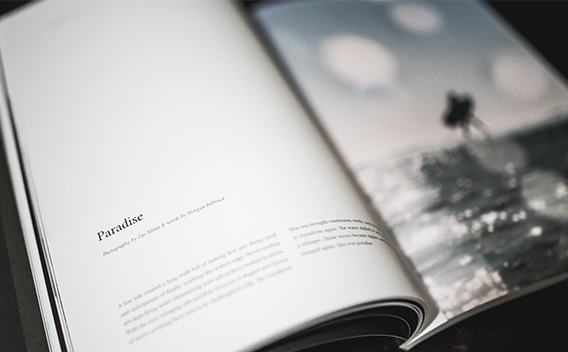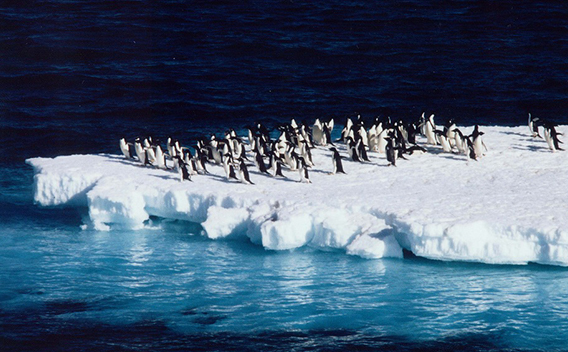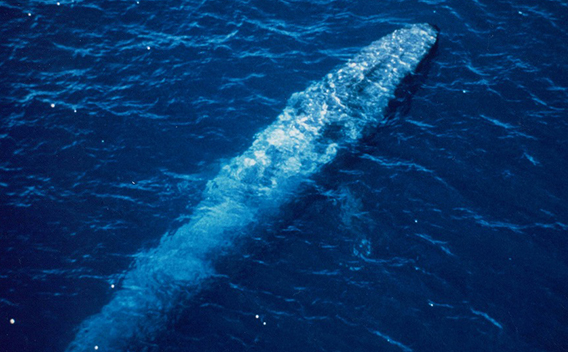Prospectus for “Cetacean Population Studies”
Remarkable evolution in cetacean studies in recent decades owes much to major journals that have made significant contribution to the development of modern cetology: Discovery Reports, published by the National Institute of Oceanography in the United Kingdom, and Norwegian Whaling Gazette in Norway, as well as The Scientific Reports of the Whales Research Institute in Japan.
The Scientific Reports of the Whales Research Institute was first published in 1948, a year after the Whales Research Institute was established. Aiming to share valuable research findings and scientific knowledge worldwide, the publication was formatted in English since its beginning, quite an ambitious attempt in Japan still recovering from the devastation of World War II.
Since its first publication, a total of 246 scientists contributed 419 scientific papers to The Scientific Reports of the Whales Research Institute. It is widely acknowledged and appreciated that these scientific papers were the foundation for the development of cetacean studies worldwide, and in today’s terms, it was a research journal that had a significant impact factor, or high number of citations. Regrettably, however, The Scientific Reports of the Whales Research Institute was discontinued in 1988 with the 39th volume after the institute was reorganized into the Institute of Cetacean Research.
In the 30 years since then, various types of journals on cetacean studies have been published globally, each offering different perspectives on scientific research outcomes. As for Japan, no research journal matching The Scientific Reports of the Whales Research Institute in its quality has been published. It is probably because many domestic cetologists have sought to publish their papers in international research journals based outside Japan.
As the global environment surrounding the issue of whaling became increasingly complex, we have observed a shift in publishing policies among these journals, rejecting papers whose findings are based on specific research methods such as lethal sampling. Because of this, no small numbers of papers submitted by biological scientists using samples collected through lethal surveys, even just for some parts, have been denied proper reviews. While we agree that animal ethics should be given high priority when writing a research paper, if a paper, the research method of which is allowed under domestic and international rules, is rejected, it is a decision made beyond scientific judgment.
Our new journal for cetacean population studies in the planning intends to follow the scientific policy of The Scientific Reports of the Whales Research Institute, that is, to contribute to global development of cetacean studies. As long as submitted papers conform to scientifically-accepted animal ethics, we do not make distinctions based on research methods. At the same time, to maintain the journal’s neutrality in the complex global environment surrounding whaling issues, the journal will be published from a newly organized committee, rather than as a bulletin type scientific report from a specific research institute. The title of the new journal will be Cetacean Population Studies to be abbreviated CPOPS, and we aim to keep our door wide-open for researchers worldwide, contribute to the scientific development of resource studies for marine mammals especially focusing on cetaceans, and nurture many aspiring scientists.
1st November 2017

Seiji Ohsumi, Ph. D.
Lead founding member
Publication Committee for “Cetacean Population Studies”
Rules of the Publication Committee for
Cetacean Population Studies
-
The purpose of the Publication Committee for Cetacean Population Studies (hereafter referred to as 'Committee') is to plan, edit and publish the journal of ‘Cetacean Population Studies (CPOPS).’
-
The Committee aims to create and publish, in a manner that is fair and without prejudice to research/study methods, a peer reviewed academic journal in English that covers mainly cetaceans and other marine mammals. The Committee shall publish research papers of appropriate scientific content without placing restrictions on research/study methods. Further, the journal will promote research and studies on the conservation, management and sustainable utilization of marine mammal resources and pass on the fruits of such studies to the wider society.
Only papers which are within the purview of the stated key principles are accepted.
The categories of manuscripts may consist of ; i) Original study - Full paper, ii) Original study - Short note, iii) Photo gallery (with explanatory notes), iv) Review of studies and v) other categories approved by the Committee.
Papers shall be peer-reviewed by a number of experts from corresponding areas of study. Based on the outcome of the peer-review, the Editorial Board comprised of experts of high caliber shall select and edit manuscripts to be published in a fair and careful manner, while maintaining the quality of the journal and allowing for easy reading by the readers.
-
The Committee shall appoint a Chairman who manages the whole organization, and shall also appoint a Chairman Alternate to exercise some or all of the Chairman’s powers for a specified period during the Chairman’s absence.
-
The Committee shall consist of a Management Council, an Editorial Board and a Secretariat.
The Management Council shall consider the overall framework of the publication of the journal and determine its direction.
The Editorial Board shall deliberate on the editorial process and conduct the practical business of editing.
The Secretariat shall carry out all administrative tasks relevant to the editing and publication of the journal.
-
The term of office of the Chairman and Members of the Management Council shall be five years. This does not preclude a re-election of an officer.
-
The Management Council shall be comprised of one Chairman, one Chairman Alternate and six members. These officers shall be responsible for conducting the duties of the Committee. Members of the Management Council shall be elected at the Committee. Scope of work and area of expertise shall be considered when electing the members.
-
The Management Council shall deliberate, approve and/or decide on the following:
- Course of action
- Form of publication
- Range of articles
- Matters pertaining to the key principles of editing and examining papers
- Examination of papers for acceptance or otherwise
- Proposals from the Editorial Board and the Secretariat
- Other matters deemed necessary by the Council
-
The Editorial Board shall be comprised of Editor in Chief and Editors and Invited Editors. For papers with a high degree of specialization, domestic and international Invited Editors may be appointed.
-
The Editorial Board shall deliberate, approve and/or decide on the following:
- Selection of editor in charge of manuscripts
- Selection of reviewers
- Proofreading of manuscripts
- Review of the results of the examination of papers and determination of publication
- Selection of Invited Editors
- Other matters deemed necessary by the Editorial Board
-
The Secretariat shall be comprised of the Secretary and staff members. Under the Secretary, the Secretariat carries out the following tasks:
- Receiving papers
- Making requests to reviewers for peer review
- Approval and determination of the table of contents for each issue
- Other practical tasks related to the process of publication
- Uploading papers to the Committee's website and J-Stage (open access)
- Publishing the journal as printed literature and circulating copies to research institutes worldwide
-
The peer review process shall assess whether a paper is in line with the Committee's key principles and suitable for publication in the journal, and determine the acceptance or otherwise from a broad viewpoint of whether it is informative to the audience or not.
-
Author(s) of the paper may suggest two candidates at the maximum, the editor in chief will, in principle, select one of the candidates for the peer review.
-
Peer review shall be conducted according to the rule "Requirements for Peer Review of Papers".
-
When the Editorial Board determines that a paper by the same author or the group of authors that falls into the categories stated below has the same content as the submission to the CPOPS, it is deemed as duplication and shall not be accepted:
- Papers submitted for review to a printed literature published by academic societies and other such organizations.
- Papers accepted for publishing or already published in academic journals published by academic societies and other such organizations
-
Matters not included in the Rules of Committee or any ambiguity related to the Rules may be discussed and dealt by the Management Council.
-
Changes to the Rules of Committee must be deliberated and approved by the Management Council.



